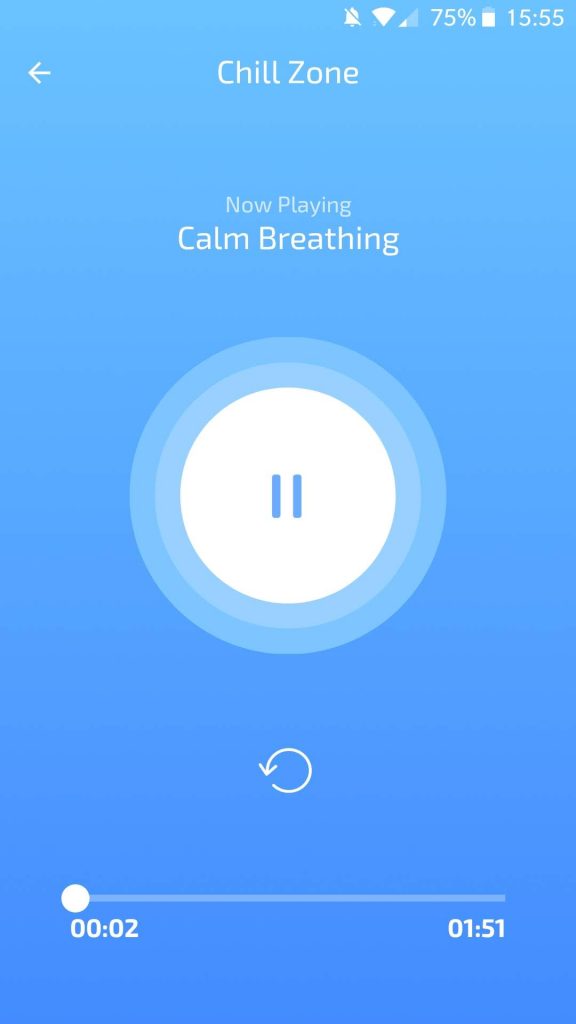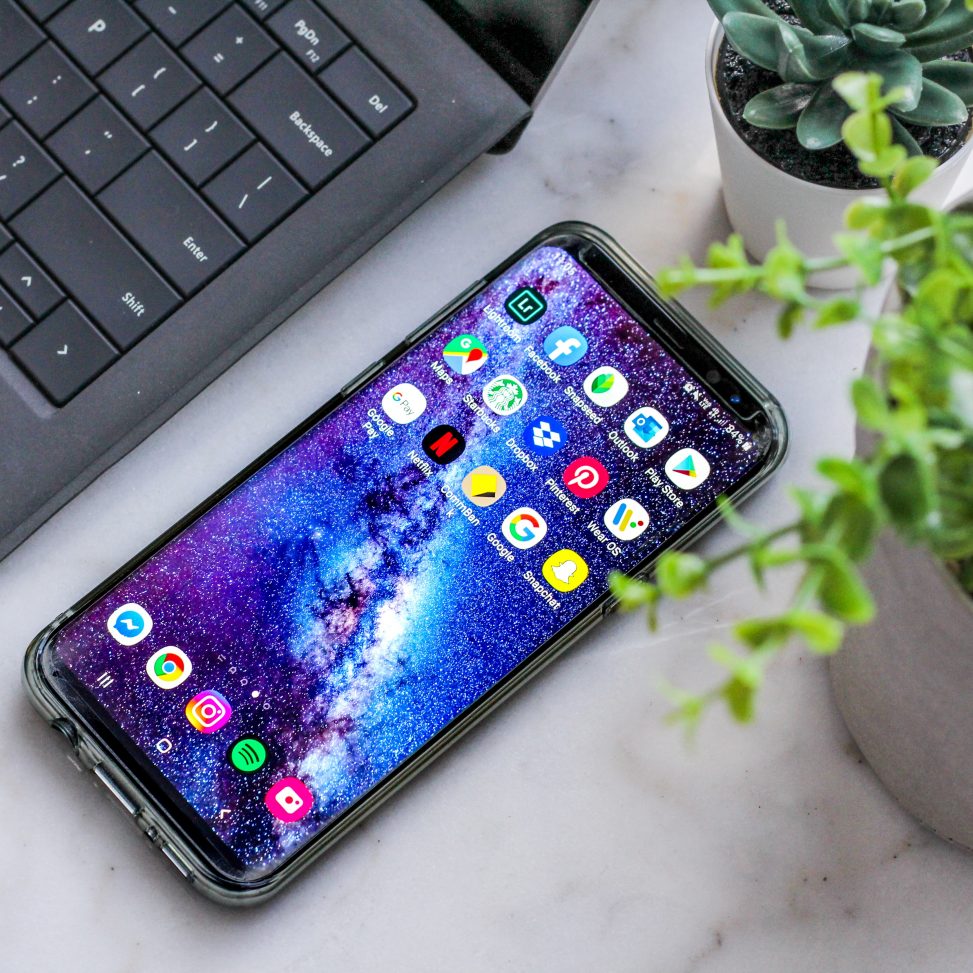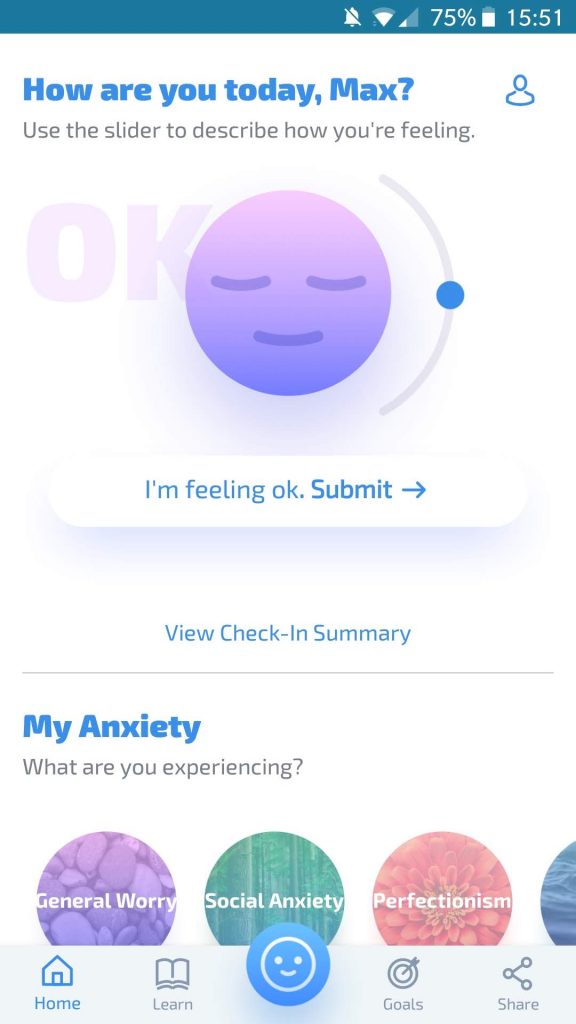This week my focus was accumulating all of the information about my app for the resource we are making, and for the presentation that we have on the 18th.
The app that I chose to look at was MindShift CBT from Anxiety Canada. The app is actually quite new, as it launched in February of this year. The title references CBT because all of the strategies provided within the app are based on concepts from cognitive behavioural therapy. As seen in the informational section of the app…
“The idea behind CBT is that our thoughts about a situation affect how we feel (emotionally and physically) and how we behave in that situation. How we behave also affects how we feel and what we think. CBT is based on the link between thoughts, feelings, and behaviours. By changing how we think and what we do, we can change how we feel.”
The app also has support from both the BC Ministry of Mental Health and Addictions and the BC Ministry of Health.
One of the main reasons I chose MindShift CBT aside from the credibility of its creators and content, was the fact that it is entirely free. Every single resource on the app is accessible to anyone who has the time to download it. During my search, I came across a lot of apps where you had to pay for a membership in order to access their content, or apps that provided limited free features in the hopes that you would pay for premium access.
Due to the fact that MindShift CBT was made by Anxiety Canada, it is tailored to anxiety. However, most of the strategies provided to deal with mild to moderate anxiety apply to general mindfulness. Thus, the app works as a resource for both.
App features include:
- A daily feelings tracker

- Information about anxiety, symptoms, and coping strategies
- A thought journal
- Coping cards
- Belief experiments
- Goal setting
- Guided talks and meditations
- A fear facing tool
- Comfort zone challenges
- Healthy habits information
As evidenced by this list, the app provides a lot of useful tools to cope with anxiety and to practice mindfulness.
In regards to ways this app could be used in the classroom, I think it would be feasible to engage students with the guided talks/meditations either as a whole-class activity, or individually with headphones when needed or desired. Additionally, I think that coping cards are a great way to teach the practice of positive self-talk.
Also! Here is the resource my group made that includes all of our favourite readings and app info!
Featured image by Andrew Mantarro on Unsplash


Leave a Reply